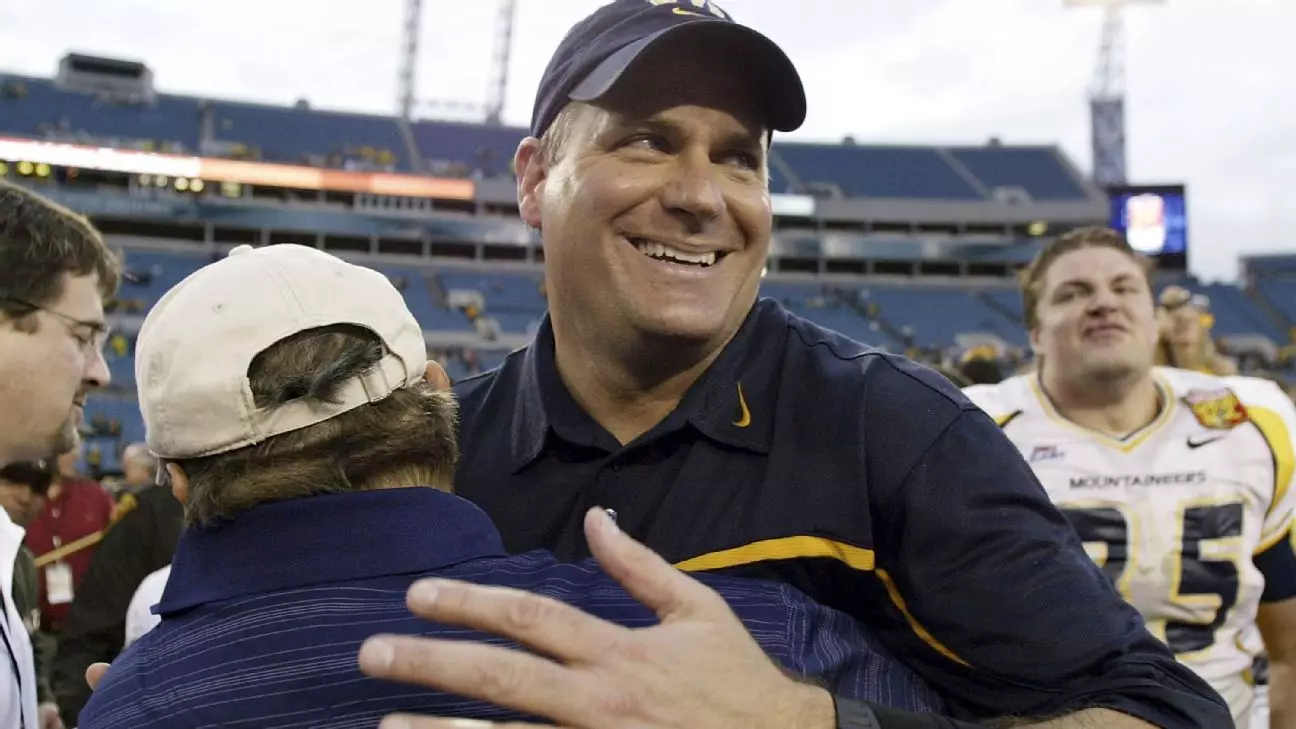In an unexpected yet welcomed twist in college football narratives, Rich Rodriguez is on the brink of his return to West Virginia University, a place where he once etched his name into the annals of sporting achievement. Having crafted his legacy between 2001 and 2007, Rodriguez now stands on the threshold of potentially reinvigorating a program that has seen better days. His career trajectory is marked by both remarkable successes and tumultuous departures, making his anticipated return a topic of considerable speculation and excitement among fans and stakeholders alike.
Rodriguez, currently at Jacksonville State, has expressed interest in reclaiming his role as the head coach of the Mountaineers. Reports indicate that a deal is nearing finalization, signaling a homecoming that brings both promise and apprehension, given the coach’s complicated past with the university. For many, Rodriguez represents the highest highs of West Virginia football—a three-year streak of ten-win seasons and a Sugar Bowl victory over Georgia in 2006. His record incites nostalgia, underscoring the heights he reached and setting the stage for what fans hope will be a resurgence.
Since Rodriguez departed from West Virginia for Michigan in a highly publicized and tense exit, the landscape of college football has shifted dramatically. Rodriguez’s earlier tenure saw him dominating the Big East, however, the athletic program has struggled since moving to the Big 12 in 2012. The Mountaineers have achieved only a single ten-win season in that time and have not ranked in the AP poll since 2018. This outlines a stark contrast to the consistent success Rodriguez fostered during his command.
The ambitions of the current administration are clearly geared towards revitalization, and Rodriguez’s hiring could signify a turning point. He has demonstrated his capability at Jacksonville State, leading the team to consecutive 9-4 seasons and a Conference USA title, thus reviving the enthusiasm of his players and fans alike. As the program searches for stability, the prospect of his return promises not only competitive rigor but also a nostalgic connection to the roots of Mountaineers football.
Rodriguez’s record after leaving West Virginia is a mixed bag. His time at Michigan ended in disappointment, marked by a dismal 15-22 record that included legal battles over his buyout. Conversely, his tenure at Arizona was more fruitful; he displayed flashes of brilliance, leading the Wildcats to a Fiesta Bowl and famously upsetting ranked teams. This duality presents an interesting dilemma: while Rodriguez has the potential to channel his past glories at West Virginia, his inconsistent record post-2007 leaves a cloud of uncertainty.
In an era where financial backing via Name, Image, and Likeness (NIL) deals plays an increasingly crucial role in recruitment and team performance, Rodriguez’s return could galvanize support from alumni and fans, translating that energy into financial contributions and recruitment advantages. Under former coach Neal Brown, West Virginia struggled to compete financially, trailing behind others in the Big 12. Rodriguez’s absence created a profound loss; his return could be the catalyst to redefine the narrative of a program in search of identity and momentum.
One of the marquee matchups that will define Rodriguez’s return is the anticipated clash with long-standing rival Pittsburgh on September 13. This game not only carries historical significance but also represents an opportunity for Rodriguez to restore pride and bring the West Virginia fan base back into the fold, rekindling a fierce sense of rivalry.
However, challenges lay ahead. The coaching landscape is more competitive than ever, and the Mountaineers are now competing against programs with deeper resources and elevated levels of investment. Rodriguez will need not only to revive the spirit of the program but also to navigate a stiff landscape filled with ambitious rivals determined to wrestle control of the football narrative in the Big 12.
As Rich Rodriguez prepares to step into Morgantown, the eyes of college football will watch intently. The stakes are high—not just for Rodriguez and West Virginia, but for the entire college football community that thrives on the stories of redemption, rivalry, and triumph. The journey could redefine both his career and the storied program of West Virginia University, making for what promises to be an exhilarating chapter in college football lore.


Leave a Reply